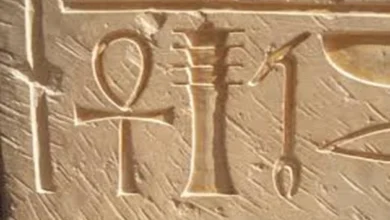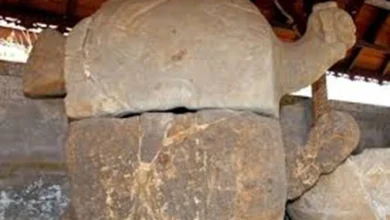Why do Spartan women shave their heads? Duties and privileges of the women in ancient Greece

Sparta is commonly portrayed as an ancient Greek city full of fearless and strong warriors. However, little is known about how Spartan women lived. Nevertheless, this article highlights points through which one can understand the duties and privileges of Spartan women and how they women differed from women in other Greek cities.
Ancient Greece
Spartan society consisted of three main classes: the Spartans, who were citizens of the city, the Perioeci, who were artisans who worked and lived nearby, and the Helots, who were serfs or slaves. Spartan women adhered by default to this class structure; they were part of the civic group and followed the social hierarchy, conforming and adhering to their class name.
Spartan women
Compared to Roman or even Athenian women, Spartan women led a life with more freedom than usual for ancient society. Spartan women were known to be independent, even if they did not attend the same schools as men. Unlike most Roman women, they received a formal education but played no role in the army. However, they were considered skilled with weapons and were encouraged to participate in sporting competitions.
To increase their independence, Spartan women were allowed to own and manage the property. On this basis, they were given a legal status equal to that of men. In contrast, Roman women had always depended on the men in their families to help them manage the property.
Furthermore, most Spartan women were literate, in addition to receiving a sports and military education, which again contrasted with other cities in Ancient Greece. Moreover, historians suggest that this was because they did not have to take care of the traditional domestic chores of women. After all, the helots performed these tasks.
Marriage
Marriage was very important in Sparta. Spartan women and men were encouraged to marry and were ashamed if they did not. Sparta needed a constant supply of young men for its military might, of which it was so proud. But to maintain the prestige of its army, the polis constantly needed boys to train to maintain the numbers of its soldiers. Because of this, every family was forced to produce male heirs, which was considered the primary role and responsibility of women in Spartan society. However, girls in Sparta usually married at around the age of eighteen, older than girls from other Greek cities, who tended to marry in their early teens. This also reduced the age gap between spouses, as their husbands tended to be in their twenties and thirties.
Unlike other city-states in ancient Greece, in Sparta, women were not largely responsible for domestic duties such as cooking, making clothes, and running a household. Instead, these tasks were performed by serfs, the helots. This partly explains why Spartan women had time to enjoy more freedom.
Before marriage, it was the custom for Spartan women to shave their heads and cut their hair short throughout the marriage. This tradition was also contrary to other cities in ancient Greece. Athenian women, for example, greatly valued their locks and often styled them in a variety of hairstyles. Long and styled hair was a feminine attribute and considered desirable, as reflected in depictions of Greek statues of Aphrodite. By shaving their heads, Spartan women adopted the hairstyle that was common to male soldiers.
What allowed women to be independent was that married couples did not live together. Men under the age of thirty had to live in barracks with their fellow soldiers to form strong bonds with each other. If they wanted to see their wives, the men would have to sneak back to their homes at night. When it came to their children, the Spartan women took care of their sons only up to the age of seven. Then the little boys were sent to live in a military school and rarely saw their parents.
Honor and duty
As marriage played such an important role in the life of a Spartan woman, the greatest honor for her as a Spartan citizen naturally derived from marriage as well. In Sparta, it was customary to place a tombstone for men if they died in battle. Similarly, women were given a tombstone if they died in childbirth. This was considered a great honor, just as a soldier would die in battle doing his duty. Not shrinking from fear and dying in childbirth was an experience the Spartans considered equal to the men who waged war and defended their country. From this, it is easy to understand the important role that the birth of sons played in the Spartan society of ancient Greece.
Another great duty that Spartan women had to perform was to kill unhealthy babies unfit for society. Therefore, Sparta imposed a duty on mothers to dispose of these babies, usually by throwing them off a high cliff, thus guaranteeing the quick death of the infant.
Skills
In order to attract a man and get married, a girl needs to be a well-prepared athlete and participate in sports competitions to attract potential suitors. Therefore, sports competitions allowed Spartan girls to show how good they were as athletes, which was considered an attractive trait.
Spartan women were trained in sports and weaponry and in skills more expected of a girl in ancient Greece. Namely, they were trained to dance and sing beautifully, which was considered just as important as the athletics they practiced. They were also taught how to manage their property and how to defend themselves properly. Since the men were only at home for a short time, the women had to cope with everything alone. Although Spartan women were not necessarily military-oriented, they received a comprehensive education that included both military and domestic activities.
Clothing
In most cities of ancient Greece, women’s clothing was strictly regulated. They had to wear special clothes that would protect them from the unwanted gaze of others and demonstrate their good moral behavior. However, Sparta did not exactly share this view and did not interfere with Spartan women dressed.
In general, women in Sparta were allowed to dress as they pleased. This consisted of short dresses that were much more revealing than what was common in the rest of ancient Greece. Their clothing likely served a practical purpose because the shorter dress allowed more movement and did not act as a physical restriction to their daily activities.
The only way that Sparta as a city influenced women’s clothing is that it wanted its citizens to adhere to a strict lifestyle and also wanted its citizens to be athletic and healthy. Because of this, Spartan women were likely to stick to simple styles of dress and pay more attention to their health and exercise regimen.
Olympic Games
The Olympic Games were a sacred and important event in ancient Greece. All Greeks looked forward to the competitions. However, because of the sacred nature of the games, women were not allowed in the arenas. Moreover, the rule was so harsh that women could face the death penalty if they saw the games.
Nevertheless, an exception was made for Cynisca, daughter of King Archidamus II. She was allowed to participate in the Olympic Games as a coach of horses. Competing as a horsewoman meant that she would not set foot directly on the ground of the Olympic Games, as she would be riding a horse. She owned a large estate where she raised and trained horses, and in 396 BC, she became the first woman to win the Olympic Games. Her example led other female athletes to compete, most notably the Spartan, Euryleonis, who won the two-horse chariot competition in 368 BC.
Sparta stands out as an important city-state in ancient Greece because of the way it treated its women. Spartan women enjoyed more freedom and had more control over their own lives. However, this was achieved at the cost of stricter marital and family responsibilities expected of society and the state.




